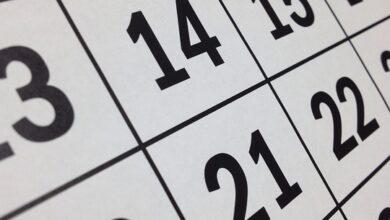
In today’s fast-paced world, many people find themselves struggling to stay accountable and focused on their personal goals and tasks. With numerous distractions and responsibilities, it can be difficult to maintain a sense of self-discipline and direction. One powerful tool for personal accountability is diary writing. The act of regularly reflecting on one’s thoughts, activities, and progress through diary writing can be immensely beneficial in fostering self-awareness, mindfulness, and personal growth. In this article, we will explore how diary writing can be a powerful tool for personal accountability and how you can harness its benefits through self-reflection.
Diary writing, or journaling, is a practice that has been used for centuries as a means of recording personal experiences, emotions, and thoughts. It can take various forms, from a daily log of events to a more in-depth exploration of feelings and aspirations. Regardless of the format, the act of sitting down to write in a diary provides an opportunity for self-reflection and introspection. This process can be instrumental in helping individuals to hold themselves accountable and to track their progress towards personal goals.
One of the key benefits of diary writing for personal accountability is the opportunity for self-reflection. By regularly setting aside time to write in a diary, individuals can gain a greater understanding of their thoughts, emotions, and behaviours. This heightened self-awareness can be invaluable in helping to identify patterns, triggers, and areas for improvement. For example, by regularly recording their eating habits and exercise routines, individuals can gain a clearer insight into their health and fitness goals, and adjust their behaviours accordingly. Through self-reflection, individuals can hold themselves accountable for their actions and make more informed choices that align with their personal values and aspirations.
Diary writing also provides a platform for individuals to track their progress towards personal goals. By setting specific, measurable, and achievable goals and regularly documenting their efforts and achievements, individuals can hold themselves accountable for their progress. This process can be particularly powerful in helping to maintain motivation and focus. Moreover, by reviewing their diary entries, individuals can gain a greater appreciation for their accomplishments and the steps they have taken towards their goals. This can be incredibly empowering and can serve as a source of motivation to continue striving towards personal growth and development.
Furthermore, diary writing can help individuals to cultivate a sense of mindfulness and gratitude. By actively reflecting on their experiences and the positive aspects of their lives, individuals can develop a greater appreciation for the present moment and the blessings that surround them. This can be instrumental in fostering a positive mindset and in helping individuals to maintain a sense of perspective and balance throughout their daily lives. Moreover, by regularly expressing gratitude in their diary entries, individuals can reinforce a sense of positivity and resilience, which can be instrumental in supporting their personal accountability.
In addition to promoting self-reflection and personal accountability, diary writing can also be an effective tool for managing stress and improving mental well-being. By regularly expressing their thoughts and emotions in a diary, individuals can gain a greater sense of clarity and release pent-up emotions. This process can be highly therapeutic and can help individuals to process their feelings in a constructive and healthy manner. Moreover, by writing in a diary, individuals can gain a greater sense of control over their thoughts and emotions, which can be instrumental in reducing stress and promoting a greater sense of mental well-being.
It is important to note that diary writing for personal accountability is a deeply personal practice and can take many different forms. Some individuals may prefer to write in a physical diary, while others may find it more convenient to use a digital journaling app. Regardless of the format, the key is to find a method of diary writing that feels authentic and sustainable. By finding a journaling practice that resonates with them, individuals can more effectively harness the benefits of self-reflection and personal accountability.
To maximize the benefits of diary writing for personal accountability, it can be helpful to establish a consistent routine. Allocating a specific time each day to sit down and write in a diary can help to foster a sense of discipline and commitment to the practice. Whether it is in the morning, at the end of the day, or during a break, having a dedicated time for diary writing can help individuals to integrate the practice into their daily lives. Moreover, by committing to this regular routine, individuals can more effectively track their progress and hold themselves accountable for their journaling practice.
In conclusion, diary writing can be a profoundly powerful tool for personal accountability. By regularly engaging in self-reflection through journaling, individuals can gain a greater understanding of their thoughts, emotions, and behaviours, as well as track their progress towards personal goals. Furthermore, diary writing can help individuals to cultivate mindfulness, gratitude, and mental well-being. By establishing a consistent routine and finding a journaling practice that resonates with them, individuals can more effectively harness the benefits of self-reflection and personal accountability. Whether it is in a physical diary or a digital journaling app, the act of regularly reflecting on one’s experiences, emotions, and aspirations through diary writing can be immensely beneficial in fostering personal growth and well-being.




